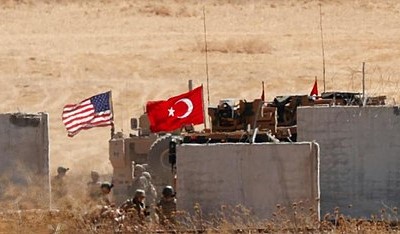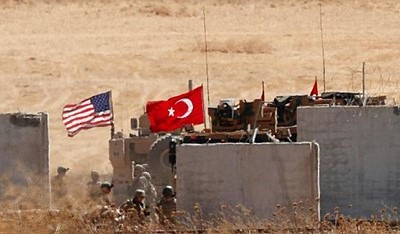How can states and societies that are in the throes of violent conflict evolve into political orders that are more broadly inclusive and anchored in institutions, both formal and informal, that protect the interests not just of those wielding power, but also of the wide range of groups in their population at large? This is the question at the heart of our research project on From Elite Bargains to (More) Open and (More) Inclusive Politics, funded by the FCDO Conflict, Stabilisation and Mediation directorate, with particular emphasis on implications for external actors seeking to support such processes.

We know from previous research that, at least over the short to medium term, more inclusive bargains at the elite level are a crucial ingredient for peace and stability. So-called elite bargains, discrete agreements between contesting military, political and socio-economic elites explicitly to (re)negotiate the distribution of power, allocation of resources and rules of the game, have proven instrumental in limiting violence among competing factions. We also know from existing evidence that, over the long term, states and societies that are more open and inclusive of the broader population, and not just of the elites, also tend to be more prosperous and resilient.
And yet, there is nothing linear or automatic about how elite bargains may evolve into more open and inclusive political systems, especially as they emerge from violent conflict. In fact, experience shows that elite bargains have a tendency to become entrenched, with post-war elites monopolising the levers of power and sources of rent in ways that often do not incorporate or benefit society more broadly. Furthermore, while deal-based elite settlements may provide crucial sources of stability, this does not mean that they fully contain political violence. Instead violence frequently plays a critical role in the functioning and reproduction of such bargains – and more often than not settings with such bargains revert to full blown violent conflict.
Our starting premise is that elite bargains do not exist in a vacuum. Rather, they are embedded within a set of institutional, political, economic, and social factors that underpin preferences and interests of elites, and shape their opportunity structures for both coercion and co-option. Key among these factors are state capacity, the role of business actors, and dynamics of political and social identity. Understanding the interplay between these is crucial because it helps define the prospects for more open and inclusive politics.
In terms of state capacity, research consistently shows that the state is indispensable in anchoring both more inclusive politics and more equitable development outcomes. But how a state functions, and how it develops capacity and deploys it, is profoundly linked to the nature of the underlying political settlement and the interests, incentives, orientation and vision of the elites that constitute it. Importantly, this interaction between state capacity and elites is dynamic, with both influencing each other.
Business actors also play an important role in shaping elite bargains. For one thing, business elites are key sources of rents in fragile settings and as a result often have close ties with political and other elites. This enables them to benefit from a lack of formal rules, institutions, and regulations to secure lucrative deals that entrench power structures and inequalities. On the other hand, business actors are not homogeneous. So while they may be deeply linked to political elites, they may be in a position to push for greater openness and inclusion if they see that in their interest – for instance if greater transparency and more effective formal regulation matters to them for the predictability these can provide.
Finally, identity – especially in relation to ethnic, religious, sectarian and gender lines – defines the parameters of who is included and who is excluded from a given political system and a sense of common destiny, and so it plays an important role in shaping prospects for both conflict and more inclusive politics. As can be seen for example in apartheid South Africa, in China in relation to the Uighur population, and in Myanmar with respect to the Rohingya, identity-based violence is a leading fault line of conflict. Identity, however, is not necessarily given but socially constructed. Historically, elites have played a crucial role in shaping and instrumentalising identity, and in determining how and why identity becomes salient and politicised. The more polarised and exclusionary identities become, the more difficult it is to open up a given elite bargain, as the perceived cost of losing power becomes too high.
Our analysis draws out a number of important lessons and implications for how external actors can more effectively nudge pathways towards more inclusive politics. These, which are also featured in a podcast we did for the World Bank 2022 Fragility Forum, include most prominently the following:
1. External actors can influence elite bargains, but there is a need to be humble and realistic. Elite bargains are not a written agreement set in stone. Instead, as the balance of power between different members of a bargain shifts and they face different constraints and opportunities to advance their interests, the rules, questions of membership, and the distribution of rents are constantly renegotiated. External actors can seek to work through the internal dynamics of an elite bargain – supporting particular (progressive) actors to strengthen their position, or promote institutions that help to entrench more inclusive outcomes – but any progress towards greater openness is likely to be slow and gradual, at the margins, and to involve setbacks. It is critical for the legitimacy and sustainability of any efforts to foster more inclusive pathways from violent conflict that external actors remain suitably modest and realistic about this – and that where they do intervene, they commit to “stick with it” over the longer term.
2. While talking about strengthening institutions has become unfashionable in recent years, institutions remain central to questions about pathways from narrow elite bargains to more inclusive politics, and the resilience and sustainability of positive change over time. Formal and informal institutions and how they interact frame the space within which elites operate. Institutions associated with power sharing or elections, for example, influence how elites might mobilise around identity issues and generate incentives for doing so around more or less inclusive or exclusionary lines. Overall the evidence suggests that while formal institutions can often codify inequality and reinforce exclusion (e.g. around gender, or ethnicity, etc), as the example of the civil rights movement in the United States shows, formalised institutions that commit to greater inclusion, equity and fairness on paper provide a crucial lever for those who are excluded to challenge and influence exclusive elite bargains and fight for change. On the other hand, if power continues to be exercised and transacted through informal rules of the game that are not aligned with the law on paper, formal rules on their own will not alter the power dynamics underpinning a given elite bargain or political settlement. External actors need to be more fully aware of the dynamic interplay between formal and informal institutions and ensure that their efforts to promote reform don’t remain predominantly focused on formal rules.
3. Not all good things go together. While both greater openness and greater inclusion in a political order are desirable, there is no “golden thread” or “virtuous cycle” of mutually reinforcing reforms that will seamlessly open up narrow elite bargains and underlying political settlements. In particular, greater inclusion of different elites in a given settlement (through power sharing agreements for example) does not necessarily pave the path to more open politics and the inclusion of non-elites. The case of Lebanon is especially poignant in this respect. There are tensions and trade-offs between different policy objectives for both external actors and domestic elites that need to be recognised, and these may not always be easy to navigate.
4. Trajectories are path dependent. How political settlements evolve over time and whether and how they can become more open and inclusive will depend on context and background conditions. History matters, and past choices, developments and junctures will shape the “art of what is possible”. This is true for both domestic and external actors. Bosnia and Iraq are examples of this, where early choices made by external actors defined and formalised the elite bargain in identity terms – ethnic in the case of Bosnia, and religious in the case of Iraq – which have become deeply entrenched. Pathways from elite bargains are also shaped by the pre-conflict and conflict political economies, not least institutional capacity. The history of state capacity – and associated memories of the role of the state – matter for expectations towards institutions of the state, perceptions of their legitimacy, and expectations of compliance with them. So, for instance, we would expect (post-)conflict pathways in Rwanda, which has a tradition and memory of a strong and intrusive state, to be very different from those in Afghanistan or Somalia, where the role of the state has been more contested.
The purpose of this research is to understand the dynamics of elite bargains, and the opportunities and constraints for pathways towards open and inclusive politics that they pose. The objective is not and cannot be to develop an account of “what works” (because there isn’t one, and especially not one that would be universally applicable) or to develop detailed policy or operational guidance. However, our hope is that these broader lessons and implications, which reinforce insights from broader research, can help to inform more realistic and grounded internationally supported efforts to foster more open and inclusive states and societies.
Blog by Alina Rocha Menocal (Principal Research Fellow, ODI), Sarah von Billerbeck (Professor of Politics and International Relations, University of Reading) and Dominik Zaum (Pro-Vice Chancellor for Research & Innovation, University of Reading), reproduced with permission of the Overseas Development Institute. The research paper was recently presented at the World Bank Fragility Forum (7 to 15 March 2022).

